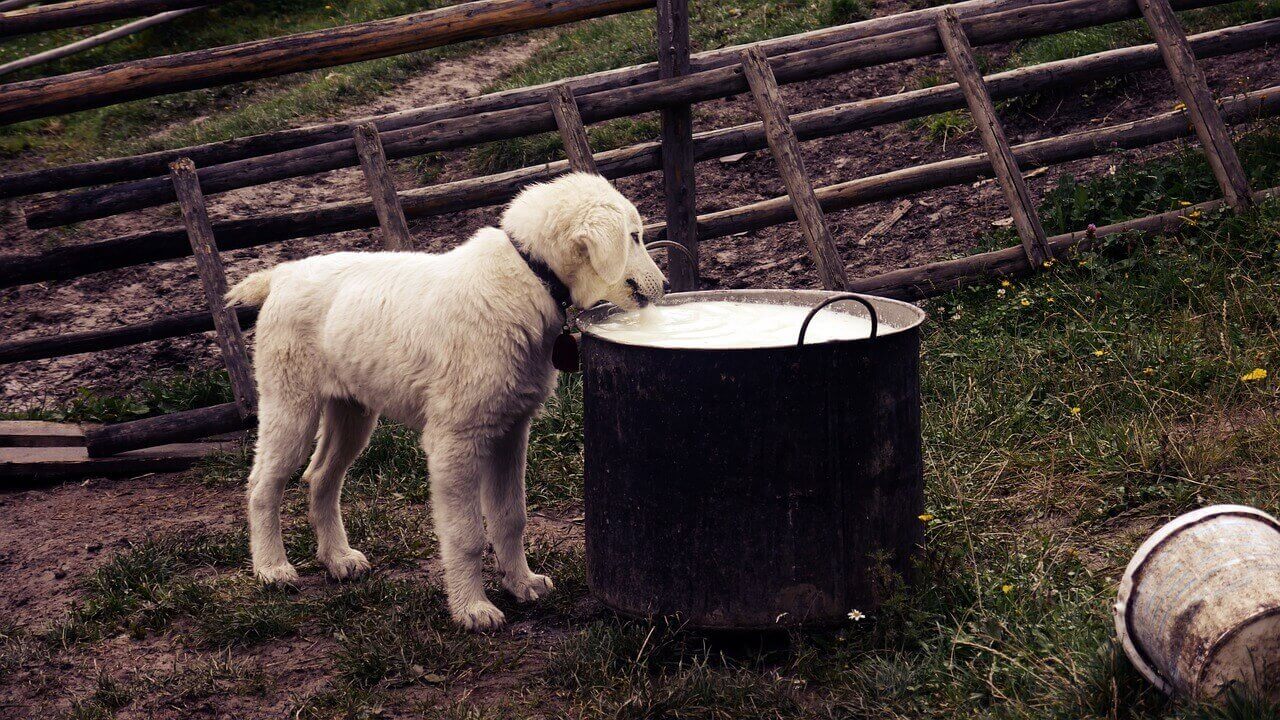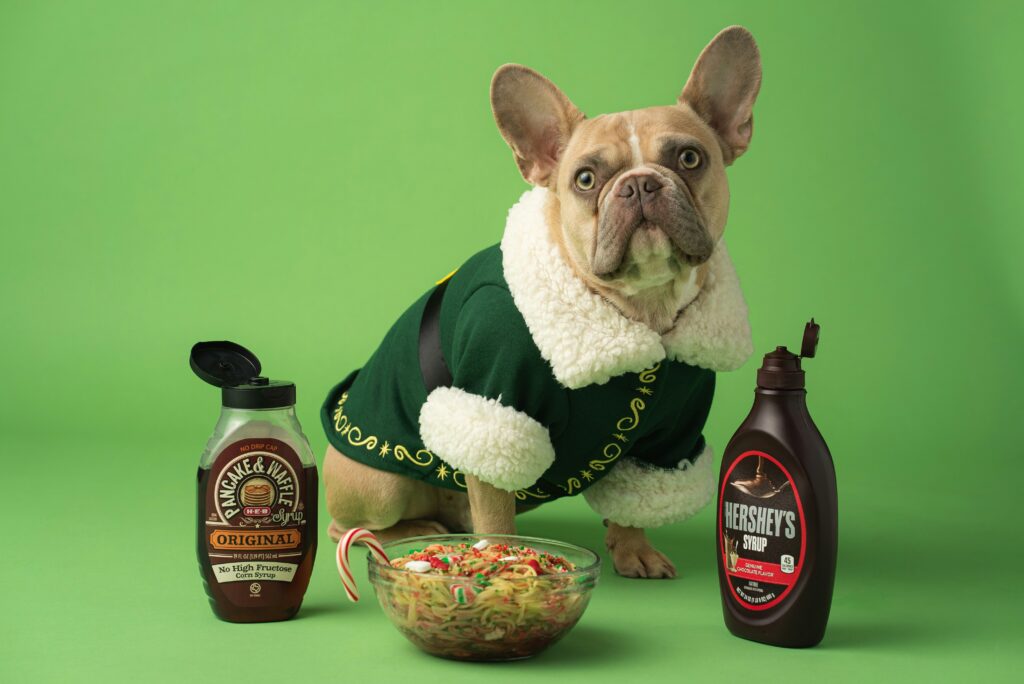
Introduction: In recent years, pet owners have become increasingly interested in exploring alternative and wholesome dietary options for their furry companions. One common question that arises is whether Can Dogs Eat Cottage Cheese?. This article delves into the nutritional aspects, benefits, and potential concerns of feeding cottage cheese to dogs. Let’s uncover whether this dairy product can be a healthy addition to your dog’s diet.
Can dogs eat cottage cheese?
Absolutely, dogs can enjoy cottage cheese, and it can even be a heartwarming addition to their diet. The thought of sharing a delicious treat like cottage cheese with your furry companion can evoke feelings of joy and connection. But before you let your emotions guide you, let’s dive into the details to ensure it’s a safe and healthy choice for your beloved canine friend.
The Nutritional Value of Cottage Cheese
Cottage cheese is a dairy product known for its high protein content and low lactose levels. It’s a good source of calcium, phosphorus, and B vitamins, which are essential for a dog’s overall health. The protein in cottage cheese can be particularly beneficial for muscle growth and repair.
Is Cottage Cheese Safe for Dogs?
Feeding cottage cheese to dogs can be safe in moderation, especially for those without lactose intolerance. It’s essential to introduce new foods gradually into your dog’s diet to monitor for any adverse reactions. Start with small amounts and observe how your dog responds.
Health Benefits of Cottage Cheese for Dogs
1. Protein Boost
Cottage cheese provides dogs with a protein-rich treat that supports muscle development and energy levels.
2. Calcium Source
The calcium in cottage cheese contributes to bone strength and dental health in dogs.
3. Probiotic Properties
Some types of cottage cheese contain probiotics that can aid in digestion and gut health.
Risks and Considerations
While cottage cheese offers several benefits, there are considerations to keep in mind:
Lactose Intolerance: Dogs with lactose intolerance may experience digestive upset after consuming cottage cheese.
High Sodium Content: Some cottage cheese varieties can be high in sodium, which may not be suitable for dogs with certain health conditions like kidney disease.
Can Dogs Eat Cottage Cheese?
Yes, dogs can eat cottage cheese in moderation, but it’s crucial to consult your veterinarian before adding any new food to your dog’s diet. Start with small portions and monitor your dog for any signs of intolerance or allergies.
How to Safely Introduce Cottage Cheese
Guidelines for introducing cottage cheese into a dog’s diet.
If you’re considering adding cottage cheese to your dog’s meals, start with small amounts to gauge their tolerance. Mix a small portion with their regular food and observe how they respond. Slowly boost the amount if your furry friend shows no signs of discomfort or upset.
Serving sizes and frequency.
Moderation is key when feeding cottage cheese to dogs. Offer it as an occasional treat rather than a staple food in their diet. Adjust the serving size based on your dog’s size and activity level.
What makes cottage cheese a healthy choice?

Cottage cheese is rich in protein and low in lactose, making it a potentially beneficial addition to a dog’s diet. Protein is essential for dogs’ muscle development and overall health, and cottage cheese offers a good source of this nutrient.
Nutritional content and its impact on dogs’ health.
Apart from protein, cottage cheese contains calcium and other essential nutrients that can contribute to a dog’s bone health. These nutrients are vital for maintaining strong bones and teeth in dogs of all ages.
Can dogs eat cottage cheese every day?
Moderation is key. While dogs can enjoy cottage cheese occasionally, it’s not recommended as a daily staple. Incorporate it as a special treat or mix-in to avoid dietary imbalances.
Cottage Cheese for Dogs with Diarrhea
When dealing with diarrhea, cottage cheese can provide a bland, easily digestible option. However, consult your vet before altering your dog’s diet.
What kind of cottage cheese for dogs
When it comes to choosing cottage cheese for your beloved canine companion, opt for the simplest and purest variety: plain, low-fat cottage cheese. Picture this: a creamy, wholesome treat that’s gentle on their tummies and packed with essential nutrients. This choice ensures your furry friend gets the goodness of protein and calcium without unnecessary additives or excessive fat. So, go ahead and pick up a tub of this nourishing delight—your dog’s wagging tail will be the ultimate confirmation of their approval!
Final Thoughts on Dogs and Cottage Cheese
In conclusion, sharing cottage cheese with your canine friend can be a heartwarming experience when done mindfully. Remember to prioritize your dog’s well-being and consult your veterinarian if you have any concerns about dietary changes.
The connection we share with our dogs is special, and sharing a simple pleasure like cottage cheese can deepen that bond.
Important Considerations When Feeding Cottage Cheese to Dogs
Despite its benefits, it’s crucial to approach feeding cottage cheese to dogs with caution:
- Moderation Is Key: Introduce cottage cheese gradually and in small quantities to avoid digestive issues.
- Choose Wisely: Opt for plain, low-fat cottage cheese without added sugars or flavorings.
- Watch for Lactose Intolerance: Some dogs may be lactose intolerant, so monitor for any signs of discomfort after consumption.
low-fat cottage cheese for dogs
When it comes to choosing snacks for our beloved dogs, opting for low-fat cottage cheese can be a thoughtful and caring choice. Just like we watch our own diets to stay healthy, offering low-fat cottage cheese to our furry companions shows that we want the very best for them. It’s a way to indulge them with something delicious while being mindful of their health needs. Picture their wagging tail and bright eyes when they taste that creamy goodness—it’s a heartwarming moment knowing you’re treating them with love and consideration. So, next time you reach for that tub of cottage cheese, choose the low-fat variety and share a special moment with your loyal friend.
Conclusion
In conclusion, while cottage cheese can be a nutritious and enjoyable treat for dogs, it’s essential to introduce it gradually and in moderation. Always monitor your dog’s response and consult your veterinarian before making significant changes to their diet. With proper care and attention, cottage cheese can be a delightful addition to your dog’s occasional snack repertoire.
FAQs
Is low-fat cottage cheese better for dogs?
Low-fat cottage cheese is generally preferable to reduce calorie intake but consult your vet for specific recommendations.
How often can dogs eat cottage cheese?
Cottage cheese should be given occasionally as a treat, not as a regular meal replacement.
Can puppies eat cottage cheese?
Puppies can have cottage cheese occasionally, but it should not replace their puppy food.
Can cottage cheese cause pancreatitis in dogs?
Cottage cheese is generally considered safe in moderation, but it’s best to consult your vet if your dog has a history of pancreatitis.
What are the signs of lactose intolerance in dogs?
Signs include diarrhea, gas, bloating, or vomiting after consuming dairy products.













